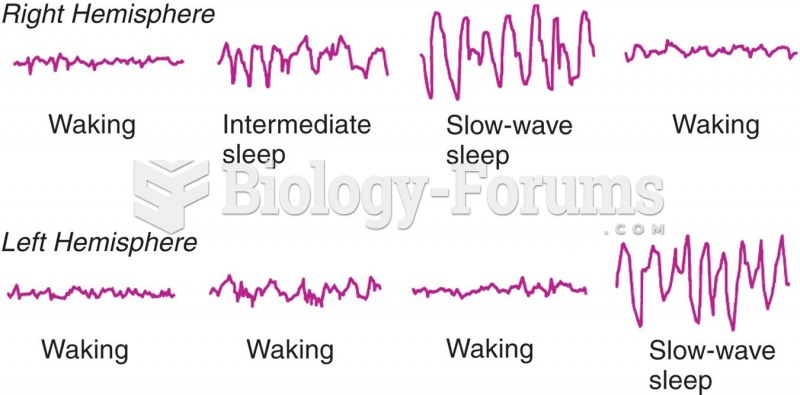|
|
|
Human stomach acid is strong enough to dissolve small pieces of metal such as razor blades or staples.
Most childhood vaccines are 90–99% effective in preventing disease. Side effects are rarely serious.
More than 30% of American adults, and about 12% of children utilize health care approaches that were developed outside of conventional medicine.
Pope Sylvester II tried to introduce Arabic numbers into Europe between the years 999 and 1003, but their use did not catch on for a few more centuries, and Roman numerals continued to be the primary number system.
All adverse reactions are commonly charted in red ink in the patient's record and usually are noted on the front of the chart. Failure to follow correct documentation procedures may result in malpractice lawsuits.







